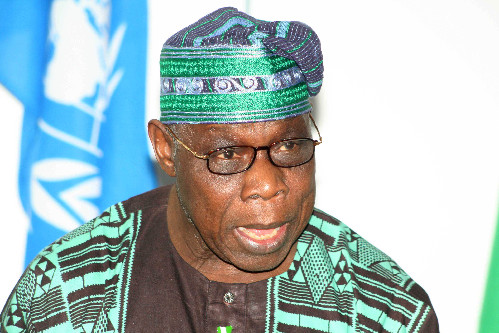|
 |
|
GREEN VISION: Former Nigerian President Olusegun Obasanjo |
The long-lasting cold weather in the northern hemisphere this year has again reminded people about the effects of climate change. Many countries are taking measures to cope with the issue, especially after last year's Copenhagen Summit. To share experiences in this regard, the China Center for International Economic Exchanges held the International Cooperative Conference on Green Economy and Climate Change in Beijing May 8-9. The conference has attracted a lot of important politicians, including Chinese Vice Premier Li Keqiang and former Nigerian President Olusegun Obasanjo.
After the opening ceremony, ChinAfrica reporter NI YANSHUO had an exclusive interview with Mr. Obasanjo on his view of the climate change.
ChinAfrica: What should we do to deal with the climate change?
Olusegun Obasanjo: First of all, I would move away from what I call the "blame game." We must also establish the true position and realities.
Almost 500 years ago, the developed world, or the developed economies, or the industrialized world, discovered fossil fuel. It was the mechanism, or instrument of their industrialization. One must not complain about the fact that humanity is developing, because it is development that brings about civilization. But we must also accept that consciously or unconsciously their industrialization has polluted the world.
All right, if we agree with that, we now ask: what can we do about it? We do not say, "Because you have polluted the world, you go and clean the world." We cannot say that because we are all victims. Those who contribute, the polluters of many centuries back, those who are trying to develop, we are all victims and we are all living in the same house. If we do not do something collectively together, the house will collapse on all of us.
So what do we do? Now because you are richer and we have to maintain this house, you should pay more. Not only are you richer, you also contributed more to the pollution. Meanwhile, I cannot afford to pollute as you have polluted, because if I do that, we are not going to make progress. For me to develop, I have to do things different from the way you did it. You should help me to develop, but not using the method, or the methodology, or the instruments you used. That is my own argument. We must cooperate. That is why I said that the technology is there for a green economy to move away from what has polluted and may continue to pollute the environment.
Now, the technology is there and the resources can be found. The funding now needs to be put together. Then, we need the political will. The political will from the developed countries, the political will from what I call the upper developing countries, or lower developed countries like China, India and Brazil. And of course, the developing countries, mainly in Africa and Latin America - how do we work together cooperatively, to clean up our globe and make the common house a more wholesome place for us to live in.
How has climate change affected African countries?
The climate change is already adversely affecting us. In my own country, we have the problem of coastal erosion. Lake Chad, which used to be the landmark in my country, only has about 20 percent of the water it used to have. In 40 years from now, if nothing is done, Lake Chad will dry up. It is already affecting us. About 2 million people's livelihood depends on Lake Chad; they're either nomadic people whose animals drink water from Lake Chad or arable farmers who water their crops from the water of Lake Chad. There are also fishermen. They get their drinking water. When Lake Chad dries up, these 2 million people will become impoverished. We cannot allow that to happen.
It's not only for Nigeria, but also for four countries that border Lake Chad: Nigeria, Niger Republic, Chad Republic and Cameroon Republic. So climate change is already having an adverse effect on Africa. We have to do something about it.
How do you see the future cooperation in terms of new energy development between China and Nigeria?
Well, when we talk about the green economy, we must see it more as a sound opportunity and less as a crisis. An opportunity for us to develop new transactions between our two countries, an opportunity to share technology and an opportunity to do business together. For instance, China is making progress in solar energy. The sun is there [in Africa], 12 hours a day and seven days a week and 52 weeks a year. That is the area we can cooperate. Wind energy is another area we can cooperate. These are all [factors in the move] toward the green economy.
There is already something going on in terms of cooperation in solar energy between Nigeria and China.
What is your expectation of the UN climate change conference to be held in Cancun in Mexico later this year?
I believe that the lessons should be learned of previous conferences, particularly in Copenhagen. I think we should not attempt to do everything all at once. What is important is sustenance of efforts. As I said earlier, it should not be "they" and "us;" it should be "all of us together." What can we achieve together? Cooperation, understanding and collectivity. |